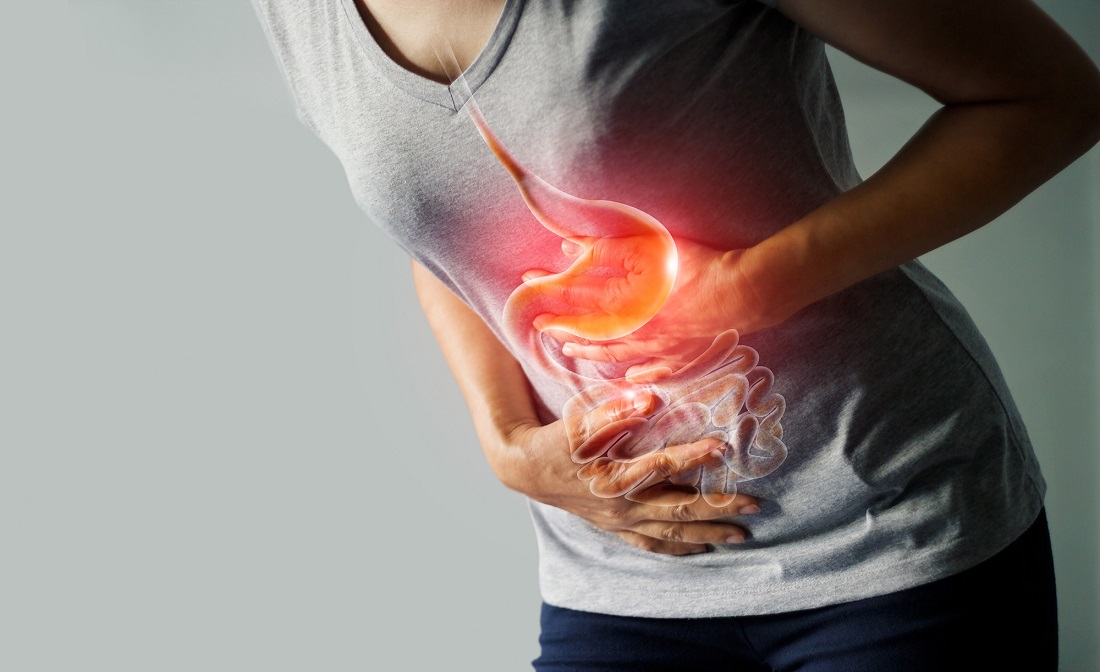
Ayurvedic medicine is some of the best treatment methods for digestive problems. Ayurvedic remedies aid in the therapy of the underlying causes of your condition. Natural herbs, in general, will not irritate your digestive system, which is an issue with most conventional treatments. It enhances your overall health and well-being, which improves your quality of life. According to Ayurveda, you should include healthy meals and eating practices that are appropriate for your body type and ailment. Food, when taken properly, may be used as medication.
Common Digestive Problems
Gastritis: It is an inflammation of the stomach lining.
Peptic ulcers: They are lesions that form in the lining of the stomach, lower esophagus, or the first section of the small intestine.
Gastroesophageal reflux disease: This is a disorder in which stomach contents travel backward or reflux into the esophagus.
Irritable bowel syndrome: IBS is a type of gastrointestinal condition that is classified as a functional bowel disorder.
Chronic diarrhea: It is characterized as regular loose stools lasting longer than four weeks.
Constipation: If you have hard or tiny pellet-like stools, fewer than three times per week stools, or feel the need to strain while passing motion, you may have constipation.
Inflammatory bowel disorders: Crohn's disease and ulcerative colitis are examples of inflammatory bowel illnesses (IBD).
Bowel obstruction: It refers to a blockage in the small or large intestines. The blockage might be partial or full, but it makes it difficult for food and fluids to move through the intestines, causing considerable discomfort.
In Ayurveda, poor digestion is referred to as Agnimandya, which means a diminished digestive fire that is unable to transform rasa (nutrients) into life-sustaining Ojas (energy).
Agni is the Sanskrit name for the "digestive fire," which breaks down the food and other items we intake from our surroundings, allowing us to assimilate what is beneficial and eliminate what is not.
Agni differs from one person to another.
How does Ayurveda help to manage digestive problems?
Regular Meditation
Research is progressively validating the genetic changes occurring with regular meditation, which could also help restore the body's equilibrium, including the mechanisms that govern digestion. To get the most out of meditation, practice it daily. We at Recovalife have regular meditation sessions in our clinics.
Engage in some form of daily movement or exercise daily.
Daily exercise for atleast 30 mins a day improves digestion and overall health.
Don't Overeat
According to Ayurveda, we should keep one-third to one-quarter of our stomachs empty to help our bodies efficiently digest our meals. Over- eating(eating many times a day and also eating too much) leads to indigestion many a times.
Lunch is the best time to eat your largest meal
When we are active during the day, our bodies are best suited to digest meals. According to research, our digestive system secretes the most "digestive fluids" around noon, making this the optimal time to consume our largest meal. Our bodies calm down and prepare for sleep in the evening. We will feel heavy and bloated and more likely to have problems going to sleep if we eat our largest meal at dinner when our digestive fire is weaker. Also meal timings to be kept regular.
Ayurvedic treatment for digestion related problems
Panchakarma therapy processes assist in flushing toxins or waste items from your body. Panchakarma consists of five detoxification methods (medicated enema, medicine-induced vomiting, drug-induced purgation, and blood-letting).
Detoxification techniques strengthen your digestive system. Abhyangam (massage) and Shirodhara (pouring medicinal oil over the head) relieve stress and enhance overall bodily function.
Some herbs and ayurvedic formulations also form a major part of treating gastric disorders. Home remedies like eating dry ginger powder before every meal also helps in improving digestion.


